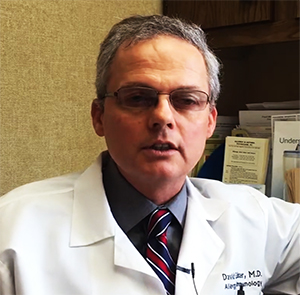Navigating the complexities of IgM deficiency can be challenging, but finding the right specialist makes all the difference.
Boston, renowned for its world-class medical institutions, offers a wealth of experienced doctors dedicated to diagnosing and managing this rare immunodeficiency.
These specialists are not only well-versed in the latest treatments but also committed to providing personalized care tailored to each patient’s needs.
With a focus on cutting-edge research and compassionate patient care, Boston’s top IgM deficiency doctors stand out for their expertise and dedication.
From understanding the nuances of the immune system to offering innovative treatment plans, these professionals are at the forefront of medical advancements.
Whether newly diagnosed or seeking a second opinion, patients can trust that they’re in capable hands with these leading experts.
Discovering the right doctor is the first step towards effective management and improved quality of life for those affected by IgM deficiency.
Top 9 Best IGM Deficiency Doctors in Boston
Immunoglobulin M (IgM) deficiency is a rare immune disorder that can lead to increased susceptibility to infections. Finding the right specialist to manage this condition is crucial.
Boston is home to some of the best healthcare professionals in immunology and related fields.
Here are nine top doctors in Boston known for their expertise in diagnosing and treating IgM deficiency:
1. Dr. Johnson Wong, MD

- Location: 1 Washington St, Wellesley Hills, MA
- Contact: (617) 732-9850
- Specialties:
- Immunology
- Environmental Allergies
- Autoimmune Diseases
- Food Allergies
- Education: University of California, Berkeley
- Board Certification: Internal Medicine
- Hospital Affiliations: Massachusetts General Hospital, Newton-Wellesley Hospital
- Experience: 43 years
- Patient Rating: 4.4/5
2. Dr. David Riester, MD

- Location: 79 Erdman Way #101, Leominster, MA
- Contact: (978) 840-8000
- Specialties:
- Environmental Allergies
- Food & Drug Allergies
- Asthma
- Immunodeficiency Disorders
- Education: University of Texas Health Sciences Center
- Board Certification: Allergy & Immunology
- Hospital Affiliations: Newton-Wellesley Hospital, Lahey Hospital
- Experience: 30 years
- Patient Rating: 4.9/5
3. Dr. Curtis Moody, MD

- Location: 300 Longwood Ave, Boston, MA
- Contact: (617) 355-6117
- Specialties:
- Pediatric Immunology
- Pediatric Allergies
- Asthma in Children
- Immunodeficiencies in Pediatric Patients
- Education: University of Vermont College of Medicine
- Board Certification: Pediatrics, Allergy & Immunology
- Hospital Affiliations: Boston Children’s Hospital
- Experience: 67 years
- Patient Rating: 5.0/5
4. Dr. Duane Wesemann, MD

- Location: 75 Francis St, Boston, MA
- Contact: (617) 732-5500
- Specialties:
- Immunology
- Allergies (Environmental and Food)
- Immunodeficiencies
- Asthma and Respiratory Allergies
- Education: University of Alabama at Birmingham
- Board Certification: Allergy & Immunology
- Hospital Affiliations: Brigham and Women’s Hospital
- Experience: 19 years
- Patient Rating: 4.8/5
5. Dr. Timothy Lax, MD

- Location: 369 South St, Pittsfield, MA
- Contact: (413) 443-4826
- Specialties:
- Environmental Allergies
- Food & Drug Allergies
- Immune System Disorders
- Immunodeficiencies
- Education: Oregon Health & Science University
- Board Certification: Allergy & Immunology
- Hospital Affiliations: Beth Israel Deaconess Medical Center
- Experience: 18 years
- Patient Rating: 5.0/5
6. Dr. Rebecca Saff, MD

- Location: Massachusetts General Hospital, 55 Fruit St, Boston, MA
- Contact: (617) 726-3850
- Specialties:
- Immunology
- Environmental and Food Allergies
- Autoimmune Disorders
- Immunodeficiency Conditions
- Education: Boston University
- Board Certification: Internal Medicine
- Hospital Affiliations: Massachusetts General Hospital
- Experience: 16 years
- Patient Rating: 4.4/5
7. Dr. Joyce Hsu, MD

- Location: 850 Boylston St, Ste 540, Chestnut Hill, MA
- Contact: (617) 731-2748
- Specialties:
- Pediatric Immunology
- Pediatric Allergies
- Asthma and Respiratory Conditions in Children
- Immune System Disorders in Pediatric Patients
- Education: Columbia University College of Physicians and Surgeons
- Board Certification: Pediatrics, Allergy & Immunology
- Hospital Affiliations: Brigham and Women’s Hospital
- Experience: 15 years
- Patient Rating: 5.0/5
8. Dr. Jared Eddy, MD

- Location: Rose Medical Center, Denver, CO (Boston Telehealth Services Available)
- Contact: (303) 388-4461
- Specialties:
- Infectious Diseases
- Immunodeficiency Disorders
- Autoimmune Disorders
- General Immunology
- Education: Johns Hopkins School of Medicine
- Board Certification: Infectious Disease
- Experience: 10 years
- Patient Rating: 5.0/5
9. Dr. Jacqueline Chu, MD

- Location: 100 Everett Ave, Ste 16C, Chelsea, MA
- Contact: (617) 887-4600
- Specialties:
- Infectious Diseases
- Immunodeficiency Disorders
- Autoimmune Diseases
- Complex Immune System Conditions
- Education: Case Western Reserve School of Medicine
- Board Certification: Internal Medicine
- Hospital Affiliations: Massachusetts General Hospital
- Experience: 12 years
- Patient Rating: 5.0/5
Why Is It Important to Find the Right Specialist for Igm Deficiency?
Finding the right specialist for Immunoglobulin M (IgM) deficiency is crucial because this rare immune disorder can significantly impact a person’s ability to fight infections.
IgM is a type of antibody that plays a critical role in the early stages of immune response, particularly in combating bacterial and viral infections.
When someone has IgM deficiency, they may experience frequent, severe, or prolonged infections, making proper management essential for their health and quality of life.
Here are several reasons why finding the right specialist for IgM deficiency is important:
Accurate Diagnosis and Treatment
IgM deficiency can be challenging to diagnose, as its symptoms overlap with other immune disorders.
A specialist in immunology or infectious diseases has the expertise to accurately diagnose IgM deficiency and rule out other potential causes of immune dysfunction.
These professionals use specific tests, such as immunoglobulin level measurements, to identify the condition and guide treatment options.
Tailored Treatment Plans
IgM deficiency requires a personalized approach to treatment, as the severity and type of infections can vary from person to person.
A skilled specialist will develop a tailored treatment plan that may include regular immunoglobulin replacement therapy, prophylactic antibiotics, and lifestyle modifications to reduce the risk of infections. This individualized care ensures that the patient’s unique needs are met.
Prevention of Serious Complications
Without proper management, IgM deficiency can lead to serious complications such as chronic lung disease, organ damage, or long-term infections that may become resistant to treatment.
Specialists are trained to monitor patients closely, identify early signs of complications, and adjust treatments as needed to prevent more severe health issues.
Access to Advanced Therapies and Research
Immunologists and infectious disease specialists often have access to the latest treatments, clinical trials, and research in the field of immune disorders.
This access is critical for patients with IgM deficiency, as emerging therapies or new clinical findings could improve their long-term health outcomes.
A specialist can provide the most up-to-date care options, which may not be available through general practitioners.
Holistic Management of Immune Health
IgM deficiency can affect other aspects of a patient’s health, including their overall immune system function.
A specialist can coordinate care across multiple areas of health, including nutrition, vaccination, and infection prevention, to ensure the patient remains as healthy as possible.
They can also educate patients about lifestyle adjustments that reduce infection risks, such as proper hygiene and avoiding certain environmental exposures.
Emotional and Psychological Support
Dealing with a chronic immune deficiency can be emotionally and psychologically challenging. Frequent infections, hospital visits, and uncertainty about one’s health can lead to anxiety or depression.
Specialists often work as part of a multidisciplinary team that includes mental health professionals, social workers, and patient support groups, providing a well-rounded approach to patient care that addresses both physical and emotional needs.
Long-Term Monitoring and Care
Since IgM deficiency is a chronic condition, long-term monitoring is essential. The right specialist will ensure regular check-ups, monitor immune function, and adjust treatments as necessary.
They can also track the progression of the condition, making it easier to identify changes in the patient’s health and respond quickly to new challenges.
Improved Quality of Life
By reducing the frequency and severity of infections, the right specialist can significantly improve a patient’s quality of life.
Effective management of IgM deficiency allows patients to lead more normal, active lives, with fewer interruptions caused by illness.
This can reduce missed work or school days, improve social interactions, and help patients maintain their overall well-being.
Frequently Asked Questions
Who Treats IgM Deficiency?
Immunologists and allergists typically treat IgM deficiency. They specialize in immune system disorders and can provide management and treatment plans for patients with low IgM levels.
What Is the Clinical Significance of Low IgM?
Low IgM levels can indicate an immune deficiency, leading to increased susceptibility to infections, particularly respiratory and gastrointestinal infections. It may also be linked to autoimmune conditions.
What Autoimmune Disease Is Associated With IgM Deficiency?
IgM deficiency can be associated with autoimmune diseases like systemic lupus erythematosus (SLE), rheumatoid arthritis, and autoimmune hemolytic anemia.
What Is a Concerning IgM Level?
An IgM level below the normal range (typically 40–230 mg/dL) is considered concerning, especially if it leads to recurrent infections or other immune system problems.
What Causes IgM to Drop?
Low IgM levels can result from genetic factors, certain infections, autoimmune diseases, or treatment with immunosuppressive drugs.
What Infections Cause Low IgM?
Viral infections such as hepatitis, HIV, or Epstein-Barr virus (EBV) can lead to a drop in IgM levels.
Conclusion
IgM deficiency is a rare but significant immune disorder that requires specialized care for proper management.
Boston, with its world-class medical institutions and experienced specialists, offers some of the best options for individuals affected by this condition.
Experts like Dr. Curtis Moody, Dr. Duane Wesemann, and Dr. Johnson Wong bring years of expertise in immunology and related fields, ensuring accurate diagnosis and personalized treatment plans.
These professionals not only provide advanced therapies but also offer telehealth options for convenient and continuous care.
By finding the right specialist, patients can receive tailored treatment, reduce the risk of complications, and significantly improve their quality of life.
Whether newly diagnosed or seeking further management, Boston’s top IgM deficiency doctors are well-equipped to help patients lead healthier, more active lives with fewer interruptions caused by frequent infections.
Laura Fletcher